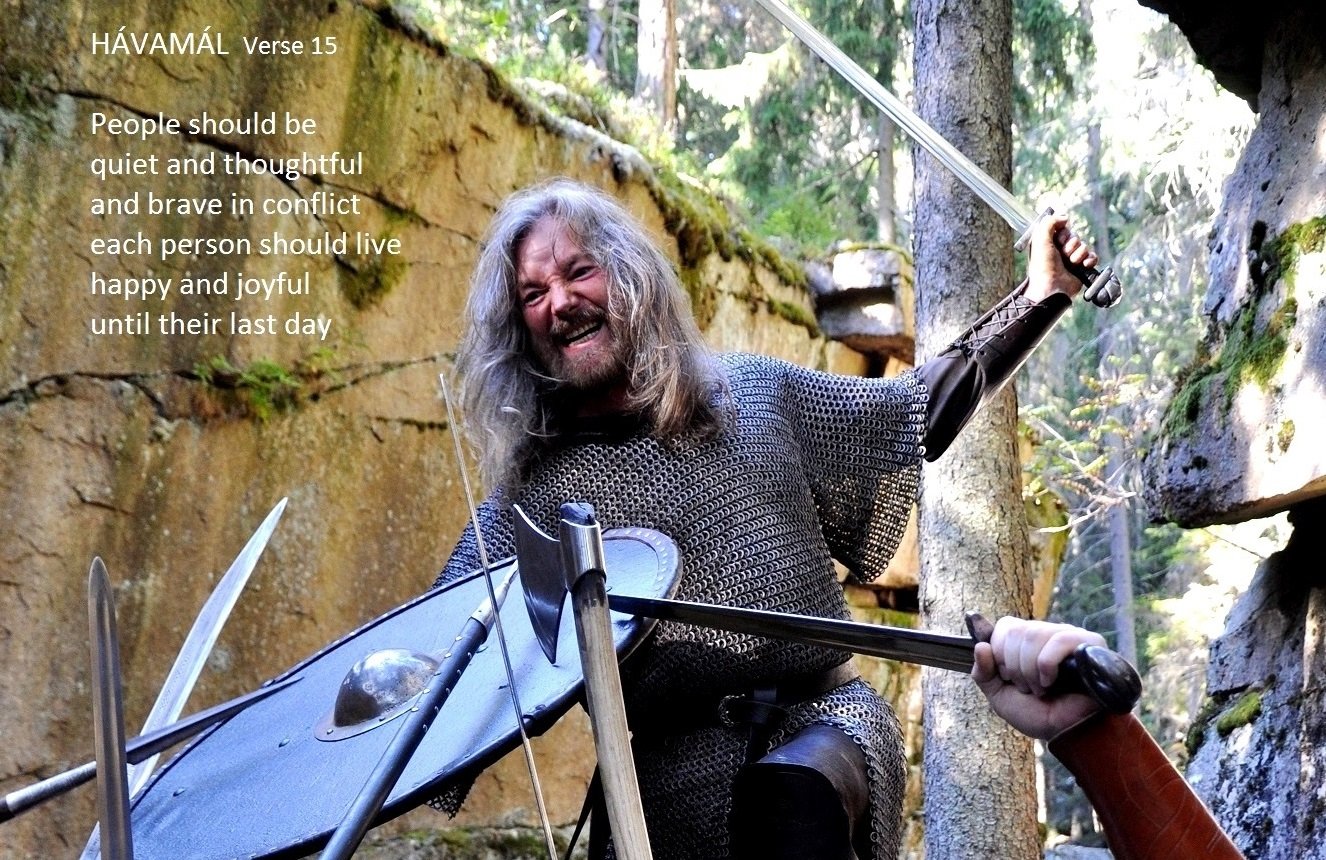Veien is a Norwegian word meaning the way, path or road. My teacher used veien to describe the way of the Viking warrior. This way was based on a strict code of ethics from the Viking clan code, the Viking code for doing business, and the code of brotherhood to fellow warriors.
Veien defines the codified Viking way of life, originating from Viking values of loyalty, honor, honesty, courage, respect, strength, perseverance, discipline, industriousness, self-reliance, generosity and justice.
This moral and spiritual code can be found within the 13th century Scandinavian documents of Hávamál (the sayings of the high one), the Biærköa rætter (Birka Law) and Konungs skuggsjá (Kings Mirror).
The Viking Code
During the Viking Age, there was no law against waring with other nations, just as there is no law against it today. Also in the Viking Age there were no laws against piracy, as long as it was against the "enemy".
During the Viking Age, any Norseman who turned his hand to piracy abroad did nothing illegal according to Scandinavian law, so long as they adhered to the Viking code. So strong was this code, it created a Viking brotherhood during journeys of trading, raiding, exploring and carving out kingdoms.





